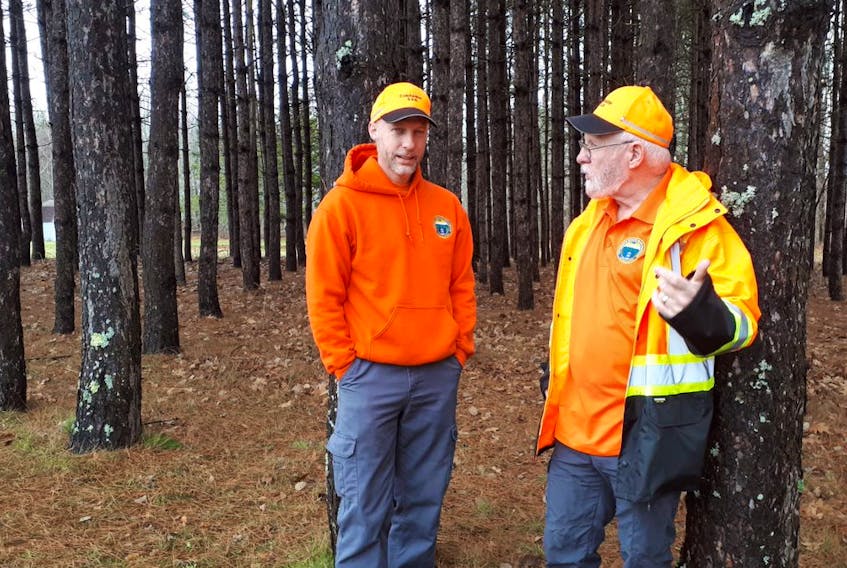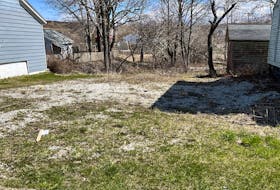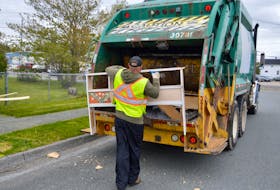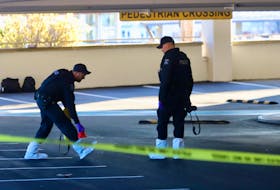TRURO, N.S. — People who volunteer for ground search and rescue or as firefighters should be able to leave their workplaces during emergencies without fear of reprisal.
That's the opinion of some members of the Colchester Ground Search and Rescue (SAR) team who say the time and expense they put into training and purchasing equipment is wasted if they can’t use it.
“I can get all the training in the world I want but it’s pointless,” if he can’t leave work during an emergency, according to James Gould of Truro.
Gould, his brother Johnathan and their father William all joined SAR last April. They have put in hundreds of hours of training and hundreds of dollars in equipment to be prepared for when a search operation is required. William is retired so the time is not an issue for him and Johnathan works at a job where he can take time off when required.
Not so for James who must work his scheduled hours. And, even though he has overtime and vacation hours banked, he is not permitted to use them for his volunteer activities.
“I understand my employer’s position. There is nothing that puts them in a position where they have to let me go,” he said. “And they are a business with the function of being a business. So, it’s not in their best interests to let employees go on calls, whether it’s fire or ground search and rescue.”
However, James and his father both say they would like to see the province enact legislation that would require employers to give time off to employee volunteers when emergency situations arise.
“The problem is that we have a real shortage of searchers in this province now,” William said. “There’s less and less people that are willing to volunteer, and those that are willing, maybe are being stopped from doing so because they can never get the time off.”
Jeff Winters, Operations Section Chief and Team Training officer with SAR, agrees.
“We need every one. We’re low staffed as it is, there’s many people carrying many hats all at once,” Winters said. “Some people are just go, go, go, because the work needs to be done, the training needs to be done, there’s all sorts of behind-the-scenes things that need to be done for a team to be cohesive and to work and to be able to respond. We need every volunteer that we have and we need more than we have.”
The Colchester team currently has about 35 volunteers but even that number is low.
“If we had another 20 on top of that we would be happy,” Winters said. “They do respond when they are available but there could be more if they didn’t have to worry about possibly not having a job if a call does come during the workday.
“I do have a couple of members who are almost fearful of leaving their jobs if it is their shift, or not coming in for their shift, even if they can call in, because they don’t think they will have a job the next week if they do that.”
For those employers, Winters suggested they stop and consider the other side of the equation.
"What if it was that employer’s house on fire or six-year-old child lost in the woods all night, or a family member, friend or neighbour experiencing this?” Winters said. “Would they still be saying due to business requirements they can't afford to let the volunteer leave to perform our duties? Or would they be appreciative of what we do and adjust the business plan to accommodate? I can't imagine any employer saying let the person stay lost, business is more important.”
James Gould estimated SAR has had about six search and rescue calls since he joined last spring. But each has occurred on days when he was scheduled to work and it has been frustrating, he said, sitting on the sidelines and not being able to put his training into practice.
“So, I would have been no use to them this entire year so far,” he said. “I have a bank of hours that I could take time off down the road. I also have vacation hours.".”
He just wants assurance that if he's required to search for a missing person who may be lost, cold, frightened, injured or worse, that he can leave his workplace with peace of mind that he will still have a job to return to.
“I’m not looking for my employer to pay me and have me go somewhere else.”
John MacKay, chief of the North River and District Fire Brigade said volunteer firefighters generally have an agreement with their employers that enable them to respond to emergencies during work hours without fear of reprisal.
“Anybody I’ve ever worked for would let you take the time off because it’s the right thing to do,” he said. “If you gotta go, you go, you just don’t get paid for it.”
Colchester search and rescue members call for employee leave protection

STORY CONTINUES BELOW THESE SALTWIRE VIDEOS
Sidney Crosby & Drake Batherson NS Showdown #hockey #halifax #sports #penguins #ottawa








